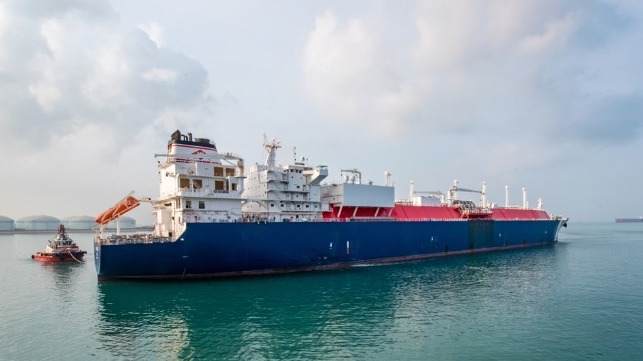Singapore’s First Carbon Neutral LNG Cargo Uses Carbon Offsetting

In another example of the use of carbon offsets to achieve carbon neutrality, Pavilion Energy Singapore reported that it has imported Singapore’s first carbon-neutral LNG cargo. A subsidiary of the Singapore government’s Temasek investment company, Pavilion is a global energy company trading LNG and developing the LNG bunkering business for the maritime industry.
The company estimated that an average LNG cargo size of 70,000 tons produces approximately 60,000 tons of carbon dioxide equivalent (CO2e) to account for “well-to-tank” emissions, including the extraction, production, transportation, and regasification. To achieve carbon neutrality for the current shipment of LNG, carbon emissions associated with the LNG cargo from well-to-tank will be offset by retiring a corresponding amount of high-quality carbon credits sourced from its portfolio of carbon offset projects.
The carbon credits used for the offset are from Natural Climate Solutions projects certified under the Verified Carbon Standard (VCS) and Climate, Community and Biodiversity Standard (CCB) - Evio Kuinaji Ese’Eja Cuana in Peru and Liangdu Afforestation in China. Both projects are designed for the protection and restoration of forests, and promote co-benefits through supporting local communities and protecting biodiversity.
The use of carbon offsetting has been growing in popularity among a broad range of shipping companies and by customers to offset their cargoes. Shipping lines including CMA CGM, MSC, Stena Bulk, and others have all introduced carbon offset programs that their customers can participate in to balance the CO2 emissions from their cargoes. Companies have also been seeking to build a new trading business in carbon offsets. For example. Australia’s Woodside recently worked with Trafigura to achieve a carbon-neutral condensate and as a result, the companies announced they were exploring a carbon management business for the marketing of carbon offset condensate, crude oil, and liquefied petroleum gas in the future.
Critics are also appearing over the use of carbon offsetting. The Union of Greek Shipowners in their proposals to the European Commission specifically called for the banning of free allowances. They feared that smaller companies lacked the administrative skills and trading expertise to participate in the market and might find themselves locked out by the big players that could be more adept in the market.
